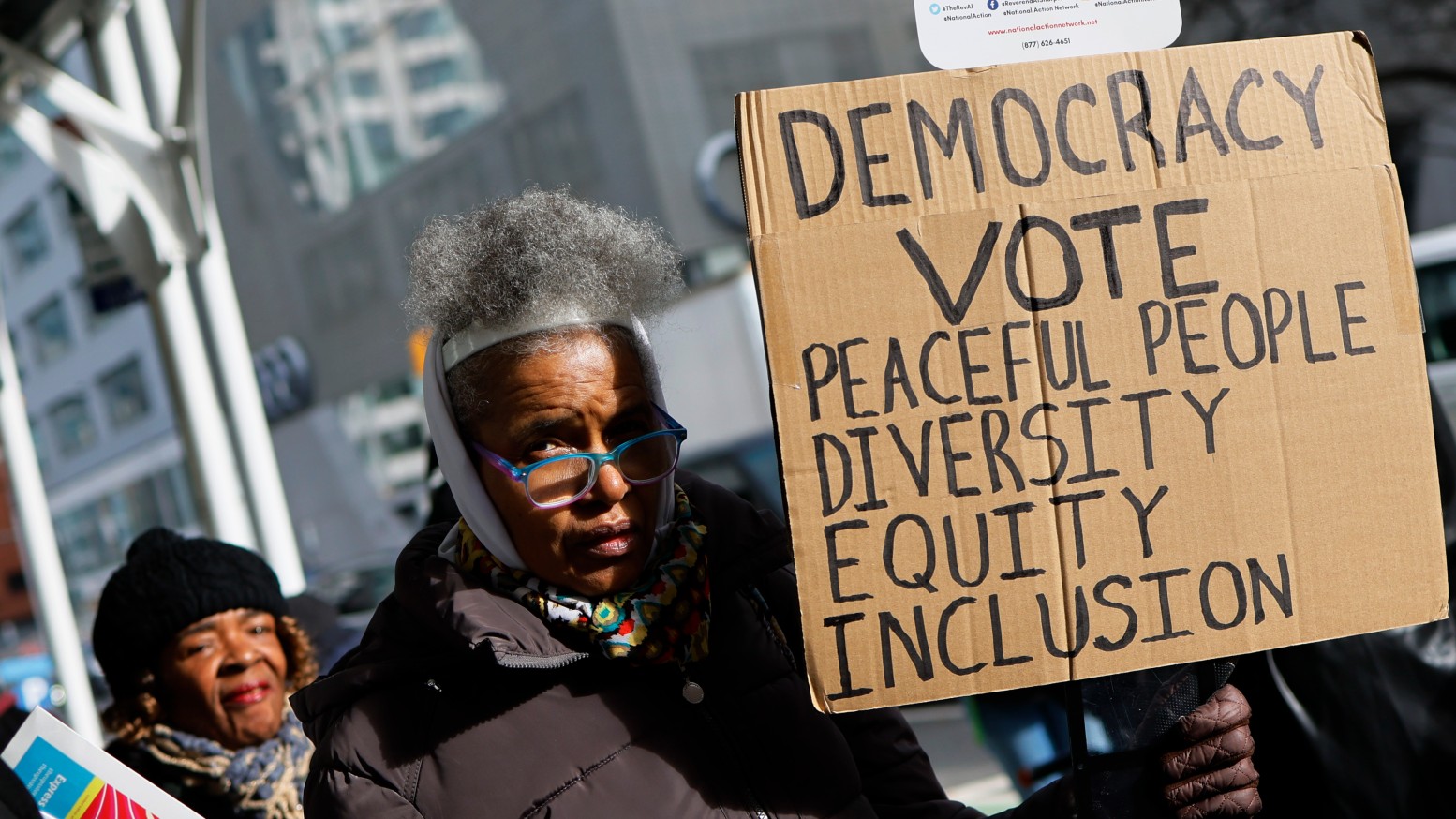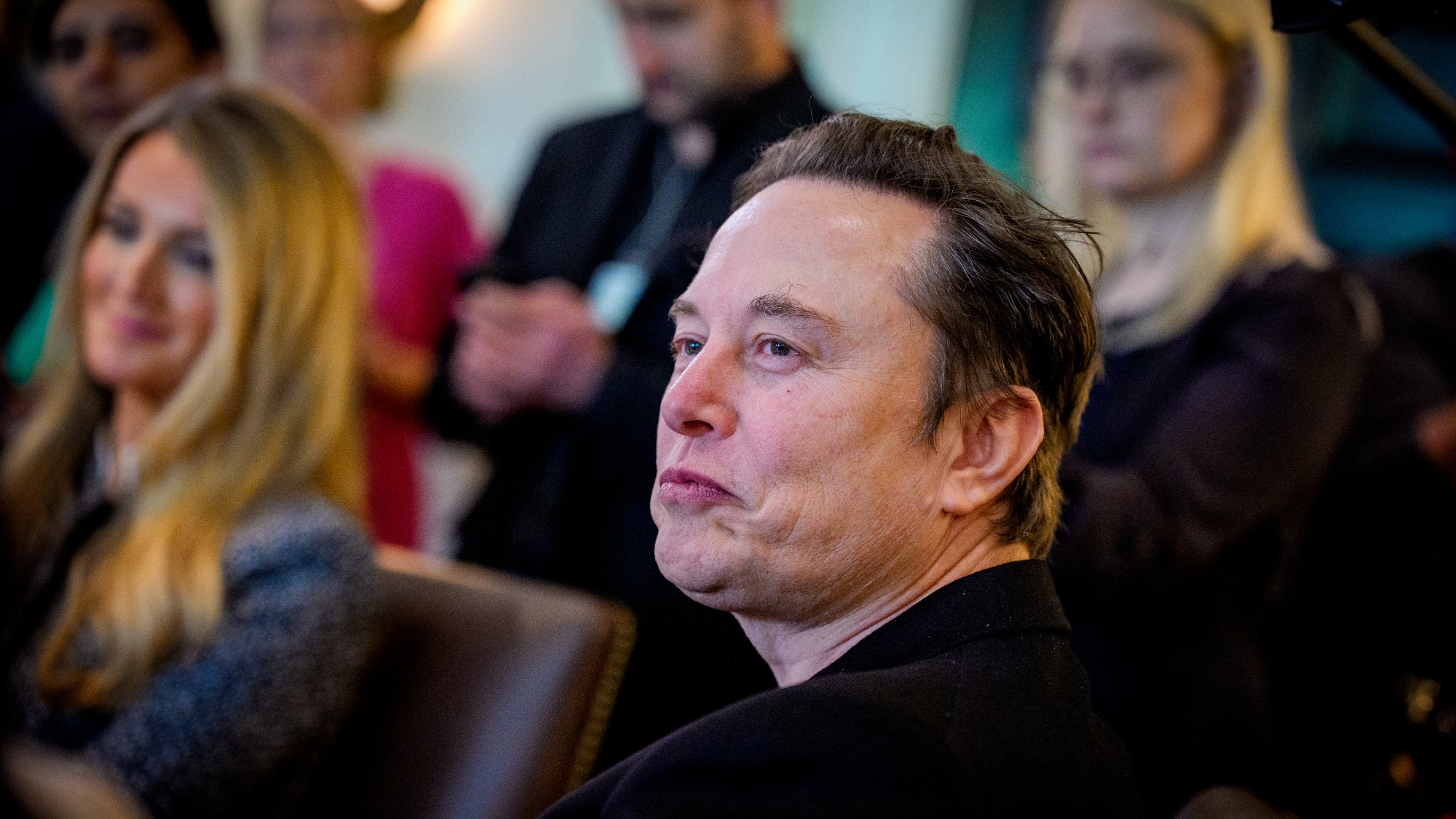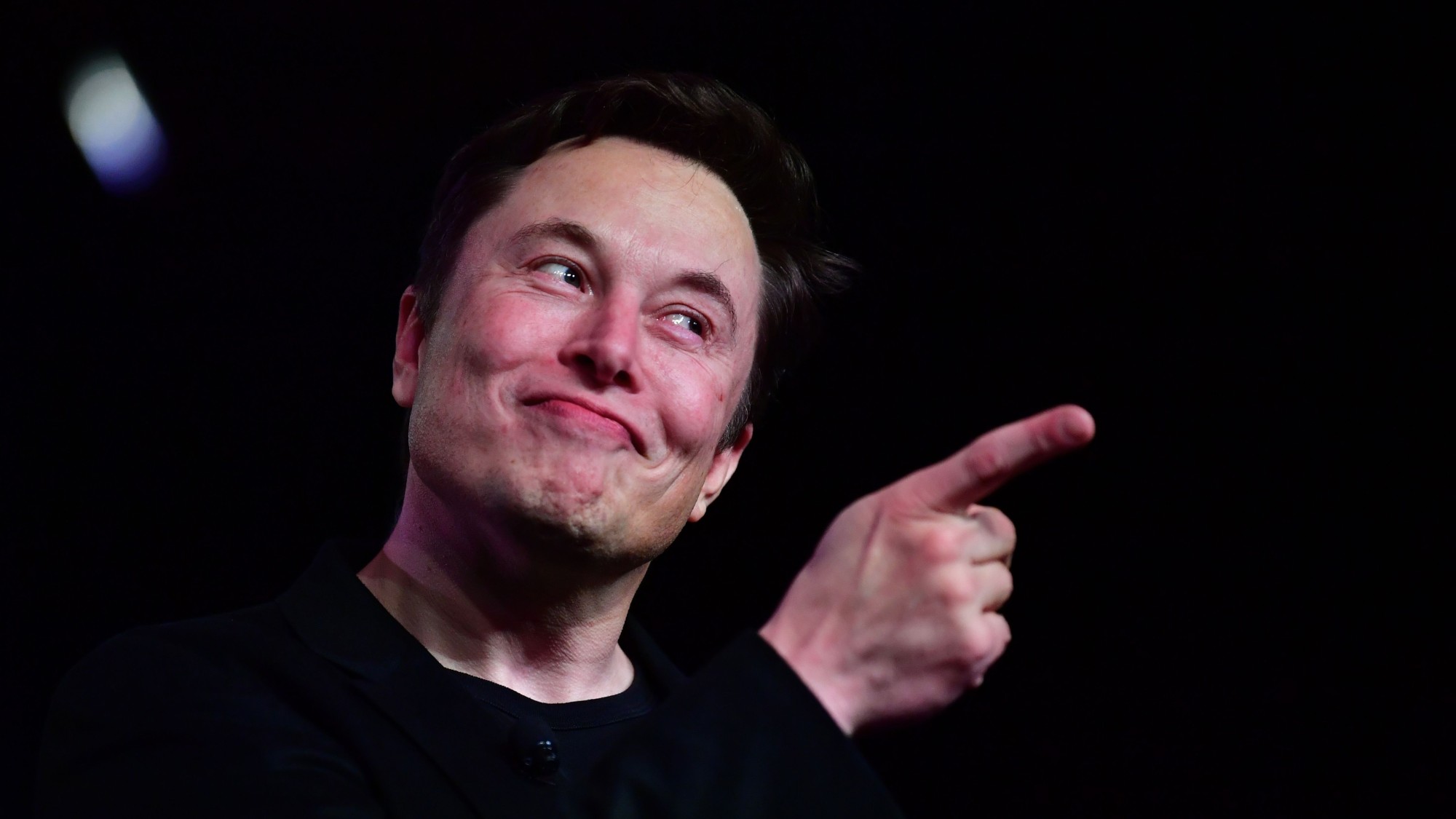Is the tide turning on diversity initiatives?
'Online pressure from the right' and legal and political changes lead major US corporates to reverse DEI policies

A free daily email with the biggest news stories of the day – and the best features from TheWeek.com
You are now subscribed
Your newsletter sign-up was successful
Ford has become the latest major US company to scale back its diversity and inclusion policies, amid a "changing legal and political environment and online pressure from the right", said CNN.
Corporate investment in diversity, equity and inclusion (DEI) initiatives rose sharply in 2020 following the wave of protests sparked by the murder of George Floyd. Management consultancy firm McKinsey estimates that US companies spent an estimated $7.5 billion (£5.7 billion) on DEI-related schemes in that year alone.
Initiatives included pledges to add more minority employees to the workforce, anti-bias training, and the hiring of a record number of chief diversity officers, with some large companies linking executive bonuses to efforts in meeting diversity goals.
The Week
Escape your echo chamber. Get the facts behind the news, plus analysis from multiple perspectives.

Sign up for The Week's Free Newsletters
From our morning news briefing to a weekly Good News Newsletter, get the best of The Week delivered directly to your inbox.
From our morning news briefing to a weekly Good News Newsletter, get the best of The Week delivered directly to your inbox.
Legal minefield
In 2023 the US Supreme Court issued a landmark ruling that ended affirmative action programmes at colleges, finding that factoring racial make-up into admissions amounted to discrimination.
While the ruling "didn't directly implicate companies" said Bloomberg, it "invigorated" legal activists, who have ramped up the amount of lawsuits targeting corporate hiring practices which they said unfairly favour non-white employees. The Washington Post reported that the decision has "so transformed the legal landscape that some companies are abandoning diversity programmes as a defensive measure even before any litigation is filed".
The debate around diversity has also infiltrated politics, where Republicans have repeatedly labelled Kamala Harris a "DEI" hire, implying she achieved her position as vice president and Democratic presidential nominee solely because of her race and gender.
Enter Robby Starbuck
Leading the charge against DEI programmes is former Hollywood music video director turned conservative activist Robby Starbuck. The 35-year-old's X account boasts more than half a million followers, and his online campaigns have been amplified by prominent right-wing influencers and the likes of Elon Musk.
A free daily email with the biggest news stories of the day – and the best features from TheWeek.com
Starbuck has "channelled energy on the right" to target specific brands "popular with politically conservative customers", such as Harley-Davidson, said CNN. The parent company of Jack Daniel's whiskey, Brown-Forman, also dropped its DEI programmes shortly before Starbuck said he was planning to start a campaign against the brand.
Last month, Starbuck approached US home improvement giant Lowe's, telling the company he planned to spotlight policies such as their employee resource groups and donations to Pride events. The Washington Post reported that the company responded with "preemptive changes", for which Starbuck claimed credit on X.
Then last week, Ford CEO Jim Farley sent an email to employees saying that the company had also changed some of its DEI policies, including ending participation in external culture surveys by the Human Rights Campaign, an LGBTQ+ advocacy group.
While Farley said Ford remained committed to creating an "inclusive workspace and building a team that leverages diverse perspectives, backgrounds and thinking styles", he acknowledged the "external and legal environment related to political and social issues continues to evolve".
While Starbuck is undoubtedly an important force in the anti-DEI pressure movement, his success is exposing the "fragility" of corporate backing for inclusion schemes, said Shaun Harper, professor of education and business at the University of Southern California and founder and executive director of its Race and Equity Center, speaking to CNN.
"If one person can take to Twitter and ultimately inflame a campaign to dismantle DEI in large companies, it means those things were not strong to begin with," he said. "Most companies and the people who lead them were not committed to this in the first place."
-
 Kurt Olsen: Trump’s ‘Stop the Steal’ lawyer playing a major White House role
Kurt Olsen: Trump’s ‘Stop the Steal’ lawyer playing a major White House roleIn the Spotlight Olsen reportedly has access to significant U.S. intelligence
-
 Rubio boosts Orbán ahead of Hungary election
Rubio boosts Orbán ahead of Hungary electionSpeed Read Far-right nationalist Prime Minister Viktor Orbán is facing a tough re-election fight after many years in power
-
 Hyatt chair joins growing list of Epstein files losers
Hyatt chair joins growing list of Epstein files losersSpeed Read Thomas Pritzker stepped down as executive chair of the Hyatt Hotels Corporation over his ties with Jeffrey Epstein and Ghislaine Maxwell
-
 Elon Musk’s starry mega-merger
Elon Musk’s starry mega-mergerTalking Point SpaceX founder is promising investors a rocket trip to the future – and a sprawling conglomerate to boot
-
 Will SpaceX, OpenAI and Anthropic make 2026 the year of mega tech listings?
Will SpaceX, OpenAI and Anthropic make 2026 the year of mega tech listings?In Depth SpaceX float may come as soon as this year, and would be the largest IPO in history
-
 Ryanair/SpaceX: could Musk really buy the airline?
Ryanair/SpaceX: could Musk really buy the airline?Talking Point Irish budget carrier has become embroiled in unlikely feud with the world’s wealthiest man
-
 Why is pizza in decline?
Why is pizza in decline?In the Spotlight The humble pie is getting humbler
-
 Tariffs have American whiskey distillers on the rocks
Tariffs have American whiskey distillers on the rocksIn the Spotlight Jim Beam is the latest brand to feel the pain
-
 Texas is trying to become America’s next financial hub
Texas is trying to become America’s next financial hubIn the Spotlight The Lone Star State could soon have three major stock exchanges
-
 Musk wins $1 trillion Tesla pay package
Musk wins $1 trillion Tesla pay packageSpeed Read The package would expand his stake in the company to 25%
-
 How Tesla can make Elon Musk the world’s first trillionaire
How Tesla can make Elon Musk the world’s first trillionaireIn The Spotlight The package agreed by the Tesla board outlines several key milestones over a 10-year period